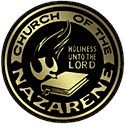I just thought this was interesting....
It is 90 years since the first major tank attack in the conflict that changed warfare, but also the language, forever.
The massive tank attack at Cambrai on the Western Front in November 1917 was not the debut of this fearsome military machine.
That was at the Somme the year before. But it was Cambrai that conclusively proved the worth of the tank, with 476 British vehicles helping to break through the German lines.
But as well as changing warfare forever, Cambrai, which led to the creation of the Royal Tank Regiment, led to a new word entering the popular - as well as the military - lexicon.
It was never intended to be that way. Tank was just a cover name for the new device. Made of boiler plate and covered with rivets, they resembled a piece of agricultural machinery, so were dubbed "mobile water tanks for Mesopotamia" - a plausible concept. The establishment had planned to call them landships, but tank stuck instead.
It's why we have the expression built like a tank, signifying something big, strong or sturdy.
And tank was not the only addition to the popular lexicon; World War I changed our vocabulary for ever.
Among the most evocative was No Man's Land, a phrase in use for hundreds of years but popularised in the national vocabulary to describe the wasteland between the trenches.
There were plenty of terms that made their debut in the Great War. Trench coats were devised by clothing manufacturers to keep officers warm and dry. Today the garment is a fashion staple, the beltrings a feature originally used to carry hand grenades.
Concrete bunkers became pill boxes. The flying ace arrived in the world of military aviation. Initially to denote a top pilot in the manner of the playing card, it came to mean those who had downed five or more opponents.
Terms like huns, Fritz, for Frederick the Great of Prussia and Jerry, the slang for a chamber pot that resembled an upturned German helmet, burnt themselves into the national consciousness. Shell shock was a medical term popularised after 1914, which today means any kind of extreme surprise.
Something top hole was associated with a superior dug-out or shelter. Over the top, meaning excessive enthusiasm, was inspired by those often fruitless attacks which involved climbing out of the trenches.
There were also phrases that, while not created or modified for the war, vaulted into mainstream usage. Where military men had referred to sharpshooters and marksmen for centuries, the arrival of so many gamekeepers and hunters at the front meant that the 19th Century coinage, sniper, took off. The sniper was one who could hit the most challenging of game birds, the snipe. Webbing was an older term used by upholsterers popularised by the canvas belts that all soldiers had to carry - previously they wore leather belts. For centuries, we'd been goggle-eyed when shocked or amazed, but in the trenches this took on a new meaning because of the early gas masks, which restricted vision and emphasised the enormous eye pieces.
Eyewash, meaning rubbish or nonsense, was to wrongly claim your eyes were affected by gas and needed treatment. Similarly, dud - someone or something that is no good - came to mean a shell that had not exploded. We still talk of being chin-strapped when excessively tired, which came from the days when exhausted soldiers felt they could only remain upright if suspended by the straps of their helmets.
Ack-ack, meaning anti-aircraft fire, came from the 1914-18 phonetic alphabet. Just as common is flak, an abbreviation of the German phrase for the same thing, fleiger abwehr kanone.
Borrowed words
The Germans also gave us panzer, their word for tank, while in 1940, they gave us blitz - literally lightning - for their method of surprise attack. And strafe, which came to be associated with planes raking fire across ground targets, came from the Kaiser's phrase, "Gott strafe England" (God punish England). And words from the old Anglo-Indian army entered common usage thanks to the huge numbers of British and Commonwealth troops who fought in Northern France and Flanders.
As many as 5.3 million men passed through this area in uniform in 1914-18 and handed down a strange assortment of words which survive to this day. Blighty, meaning homeland, is from the Urdu bilayti, meaning foreign. Urdu also provided kushi, which in time became cushy - comfortable or pleasant.
A wallah, identifying a soldier with a specific task, came from the Hindi prefix vala, meaning doer. Hindustan gave us shufti - to look around, or go on a reconnaissance. French words were corrupted or abbreviated, so reconnaissance became recce, while vin blanc - sold by every roadside cafe - emerged as plonk.
One wonders what new words will emerge as a result of British military operations in the Balkans, Afghanistan or Iraq; the next piece of jargon for a tactic or technology could be the next generation's slang.

